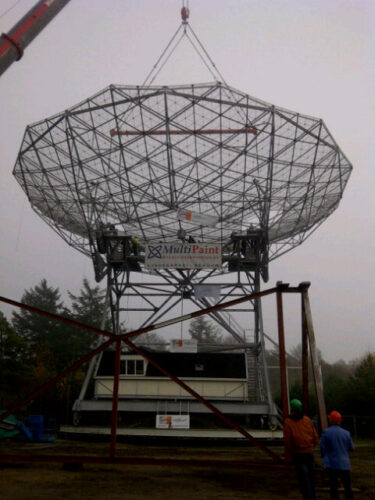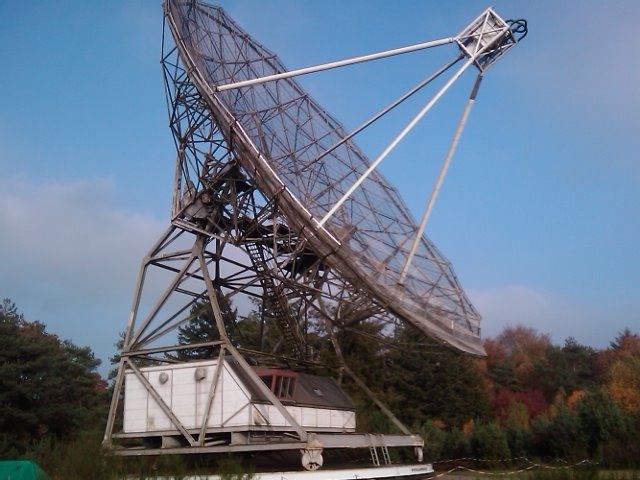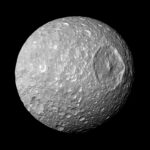COGITO project van kunstenaar Daniela de Paulis, één van de Astroblog-auteurs. De hersengolven waren op de BIO 50 conferentie bij diverse deelnemers verzameld – BIO 50 was de 24e Biënnale van Ontwerpen, dat op 18 september 2014 startte in Ljubljana (Slovenië). Samen met de radiotechnicus Jan van Muilwijk stuurde Daniela afgelopen zaterdag gedurende negentig minuten de hersengolven naar Titan. De hersengolven waren voor COGITO naar geluidsgolven. Hieronder een video, gefilmd door Harry Keizer, welke een impressie geeft van het zenden van de hersengolven naar Titan, de maan die qua omstandigheden lijkt op de vroege aarde en die door sommige wetenschappers beschouwd wordt als een plek waar mogelijk primitief leven voorkomt.
Op haar website legt Daniela de Paulis uit wat het COGITO project precies inhoudt en wat de doelstellingen zijn:
“A fundamental conclusion of the new physics acknowledges that the observer creates the reality. As observers, we are personally involved with the creation of our own reality. Physicists are being forced to admit that the universe is a “mental” construction. Pioneering physicist Sir James Jeans wrote: “The stream of knowledge is heading toward a non-mechanical reality; the universe begins to look more like a great thought than like a great machine. Mind no longer appears to be an accidental intruder into the realm of matter, we ought rather hail it as the creator and governor of the realm of matter.” (R.C. Henry, “The Mental Universe” ; Nature 436:29, 2005)‘Cogito’ speculates on the creative and philosophical possibilities of exploring the cosmos by means of radio waves.
I have been developing the project over the last two years as part of my PhD research in collaboration with radio astronomers, radio amateurs at ASTRON (NL), neuroscientists and philosophers at the University of Amsterdam.
The first part of the project, to be presented as part of BIO 50, will consist in detecting and storing the brain waves of the visitors of the ‘Observing Space’ exhibition, thanks to a brain lab connected to a computer, especially set for the event. During the BIO 50 opening day, visitors will be able to have their brain waves recorded as they walk and think across the exhibition space. The collective performative thinking will be stored as brain waves that will be transmitted as collective consciousness – and subconsciousness – by the Dwingeloo radio telescope antenna (NL), reaching out into the sky dome.
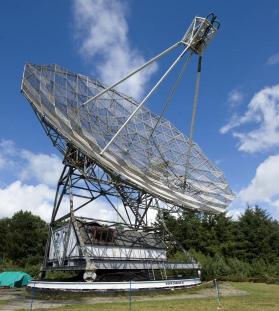
De Dwingeloo radiotelescoop
The title of the entire project is inspired by Cartesian philosophy, according to which the human consciousness resides in the mind. The title aims at linking the project to the ongoing debate on mind-body-consciousness, of which René Descartes was an important figure for his dualistic vision on the mind-body matter, which greatly influenced the development of modern Western philosophy. Some scholars argue that the computer age contributed in reviving this debate thanks to the new prominent role of the technological mind. Also recent experiments in quantum physics seem to suggest extraordinary links between the matter of the mind and that of the cosmos, raising profound questions on the nature of consciousness and perception. Sending thoughts into outer space is a symbolic action for shifting our consciousness from the earth-centred perspective, to the cosmos-wide perspective, whilst questioning the mathematical notion of intelligence, as conceived by some relevant SETI (Search for Extraterrestrial Intelligence) researchers.
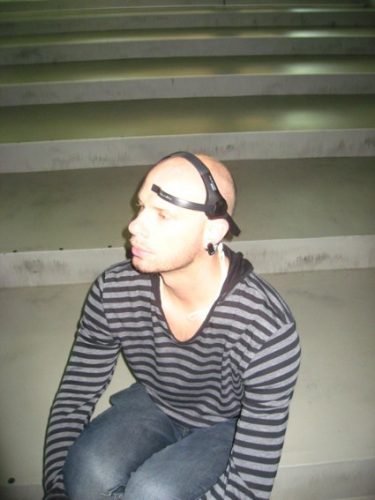
Eén van de deelnemers aan BIO 50 met een headset waarmee de hersengolven werden geregistreerd.
Thinking is more than logical reasoning and can communicate much more about our nature to a potential extraterrestrial life, should it be able to decode our EEG signals. ‘Cogito’ will allow people to experience virtual space travel and shift their consciousness into outer space. The project also aims at fostering a global awareness of our planet, raising questions on timely political and geographical issues: travelling into space as a cultural shift for better understanding our planet and reflecting upon ourselves.
